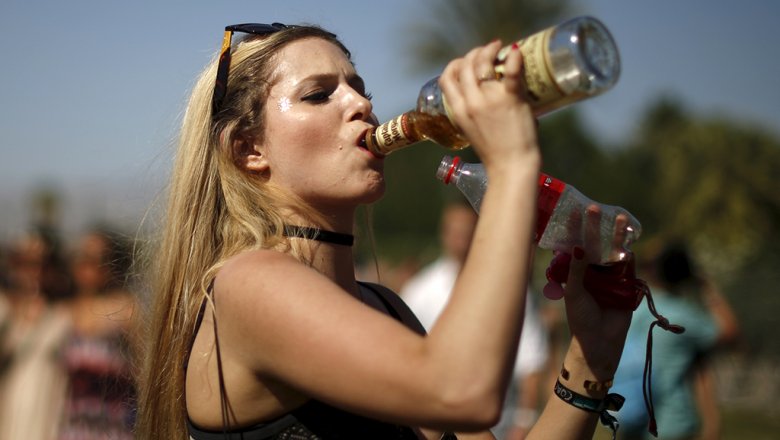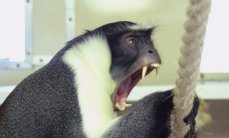Scientists have discovered a “master” gene for alcoholism
Experiments on mice have helped scientists figure out that the KLB gene is the main regulator of alcohol “appetite” of a person who determines how much he can drink its owner and how often he wants to do it.

MOSCOW, November 28 — RIA Novosti. Experiments on mice have helped scientists figure out that the KLB gene is the main regulator of alcohol “appetite” of a person who determines how much he can drink its owner and how often he wants to do it, according to a paper published in the journal PNAS.
See also the Males of monkeys learned not to argue with females
the Males of monkeys learned not to argue with females
In December last year, biologists discovered an unusual hormone FGF 21, which is synthesized by our liver, and controls the operation of the food center in the brain, including the craving for sweets. As suggested by scientists, in a similar way the substance can affect the propensity for alcohol and to influence the development of alcoholism.
Stephen cleaver (Steven Kliewer) from the University of Texas at Dallas (USA) and his colleagues figured out how FGF 21 in fact, is associated with alcoholism and revealed another gene that affects his work and is obliged to ethanol “slavery”, using new methods of genetic analysis.
As cleaver explains, his team knew that FGF 21 is associated with alcoholism, but didn’t, what exactly receptors in the brain it is connected and causes a person to consume large amounts of alcohol. To answer this question, scientists have mapped a small mutation in the genes associated with FGF 21, in the genomes of more than 100 thousand people and how many were drinking these people.
See also a Mathematician estimated the odds of humanity to disappear in the XXI century
a Mathematician estimated the odds of humanity to disappear in the XXI century
This analysis showed that multiple “point” mutations in the gene KLB were associated with noticeable changes in alcohol habits. This gene, as the scientists explain, contains instructions for the synthesis of receptors that recognize molecules of FGF 21 in the blood that gave them the idea that KLB can do to control the tendency to alcoholism.
They tested this idea by disabling KLB in the DNA of several mice and following that, how to change their behavior compared to normal rodents when meeting with alcohol.
Such mice, as shown by experiments, more often and willingly drank alcohol and preferred to use a stronger version of alcohol than their counterparts in the control group.
Interestingly, the concentration of FGF 21 in their body was the same as in normal rodents, which suggests that a tendency to alcoholism was due to it disconnecting KLB, and not some other factors.
See also to Put in a barrel with alcohol and pickling. Methods of dealing with drunks in Russia
to Put in a barrel with alcohol and pickling. Methods of dealing with drunks in Russia
What is even more interesting, disable the KLB does not lead to other changes — like the mouse behaved exactly the same as their “normal” relatives, and their bodies functioned and reacted to all stimuli, except alcohol, in exactly the same way. Changed only the number of receptors and KLB, which are connected to the molecule FGF 21 and which cause the brain to reduce the consumption of alcohol.
According to jib and his colleagues, similar to the role of KLB in the brain’s response to alcohol and the absence of significant side effects suggests that stimulation of the activity of this gene can be used as a cure of alcoholism. On the other hand, as acknowledged by scientists, it is necessary to conduct additional studies to exclude the possibility that the desire to consume alcohol suppresses not KLB, and neighboring genes.